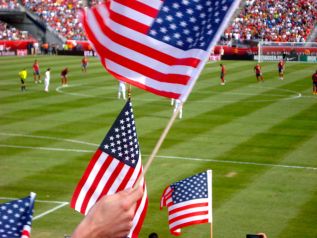When you’re watching a game, what kind of elements are you paying attention to? The pace of the game, the performance of the players and the strategy of the coaching staff are all possible answers. Something that is common on many teams but that a fan might not realize is some players are not American citizens.
When a person is not looking to become a citizen of the United States but wants to work for the country, they apply for a work visa. A work visa allows a person from another country to work in the United States without any threat of deportation. Visas are categorized by the purpose of travel, including work, students and tourism. There are several types of work visas, depending on the time-length of the job and what type of occupation a person is perusing.
José Rodriguez, director of diversity initiatives at Cabrini University, works closely with the reality of work visas.

“A work visa is the permission to do a specific job here [in the United States],” Rodriguez said. “In order to fulfill jobs that are in great demand here, work visas allow people who have those skills, who might not necessarily be United States citizens, actually to work.”
Athletes fall under the category of P-1, encompassing team or individual athletes and members of music groups. The United States of America’s Department of State defines this specific visa as “to perform at a specific athletic competition as an athlete or as a member of an entertainment group. It requires an internationally recognized level of sustained performance. Includes persons providing essential services in support of the above individual.” P-1 visas expire when the player retires.
“Typically, a work visa does not last forever,” Rodriguez said. “There is a time limit with working visas, followed by a renewal process, if necessary.”
Often, after gaining a P-1 visa, athletes apply for citizenship in the United States.
Before being able to apply for a P-1 visa, an athlete must meet at least two of the requirements of the United States Government: the athlete must participate in the sport for a significant amount of time prior to playing in the United States and the player must have competed on a national team in their country, evidence that the player is ranked and excessively skilled and evidence that they have been awarded for their athletic ability.
“I think there are too many players in United States national sports leagues that are not native citizens,” Lexi Douglass, junior elementary and special education double major, said.
While professional athletes are the most common recipient of P-1 visas, the United States Citizenship and Immigration Services recognizes eSports players under the P-1 visa jurisdiction. Professional video-gamers from around the world can apply for visas to play in tournaments in the United States.
“We are seeing more and more non-US citizens playing sports,” Rodriguez said. “There is a wide range of players from different citizenship’s across the world playing the United States.”


